How much sleep did you get last night? What about the night before? How much sleep do you actually need?
Keeping track of your sleep schedule might not always be your top priority, but getting enough sleep is critical to your health in many ways.
You may not realize it, but the amount of sleep you get can affect everything from weight and metabolism to brain function and mood.
For many people, wake-up time remains fairly constant from day to day. The time you go to sleep, however, might vary, depending on any number of things:
But since you know when you need to get up, knowing the specific amount of sleep you need to function at your best can help you determine what time to go to bed.
Below, you’ll find out how to calculate the best time to go to bed based on your wake time and natural sleep cycles. We’ll also offer more insight on how sleep cycles work and why sleep, or lack thereof, can affect your health.
How much sleep you need changes throughout your lifetime. An infant may need up to 17 hours of sleep each day, while an older adult may get by on just 7 hours of sleep a night.
Sleep guidelines can offer a place to start determining your sleep needs by providing research-backed recommendations for the ideal amount of sleep for optimal health.
The American Academy of Pediatrics and the Centers for Disease Control and Prevention (CDC) offer these general guidelines for different age groups:
Keep in mind, though, that sleep needs can still vary, even within the same age group.
You might need at least 9 hours of sleep a night to feel well rested, while your partner may wake up naturally after 7 hours, feeling perfectly refreshed and ready for the day.
The thing to keep in mind is how you feel when you get various amounts of sleep.
Here are a few questions to consider when evaluating your sleep needs:
Bedtimes are based on:
| Wake-up time | Bedtime: 7.5 hours of sleep (5 cycles) | Bedtime: 9 hours of sleep (6 cycles) |
4 a.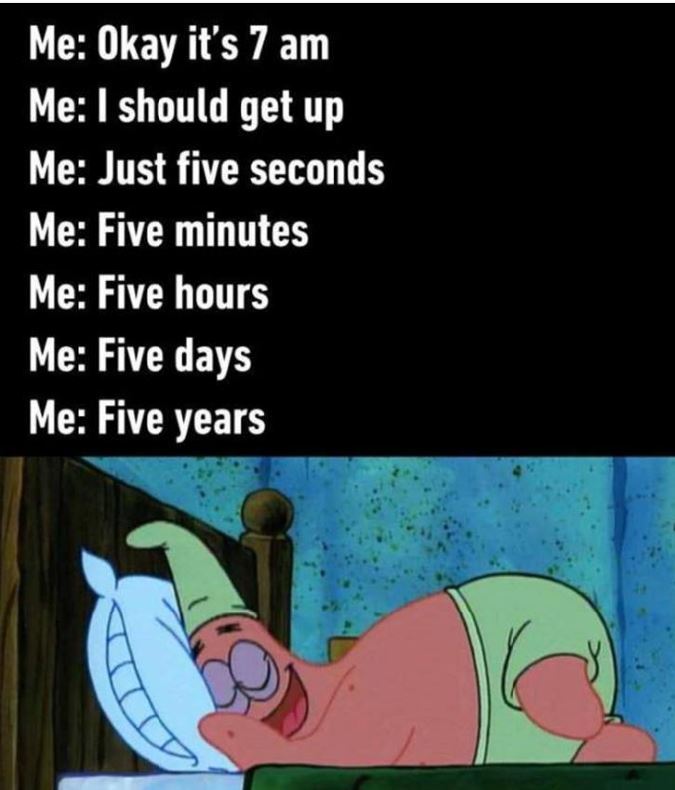 m. m. | 8:15 p.m. | 6:45 p.m. |
| 4:15 a.m. | 8:30 p.m. | 7 p.m. |
| 4:30 a.m. | 8:45 p.m. | 7:15 p.m. |
| 4:45 a.m. | 9 p.m. | 7:30 p.m. |
| 5 a.m. | 9:15 p.m. | 7:45 p.m. |
| 5:15 a.m. | 9:30 p.m. | 8 p.m. |
| 5:30 a.m. | 9:45 p.m. | 8:15 p.m. |
| 5:45 a.m. | 10 p.m. | 8:30 p.m. |
| 6 a.m. | 10:15 p.m. | 8:45 p.m. |
| 6:15 a.m. | 10:30 p.m. | 9 p.m. |
| 6:30 a.m. | 10:45 p.m. | 9:15 p.m. |
| 6:45 a.m. | 11 p.m. | 9:30 p.m. |
| 7 a.m. | 11:15 p.m. | 9:45 p.m. |
| 7:15 a.m. | 11:30 p.m. | 10 p.m. |
| 7:30 a.m. | 11:45 p.m. | 10:15 p.m. |
| 7:45 a.m. | 12 p.m. | 10:30 p.m. |
8 a.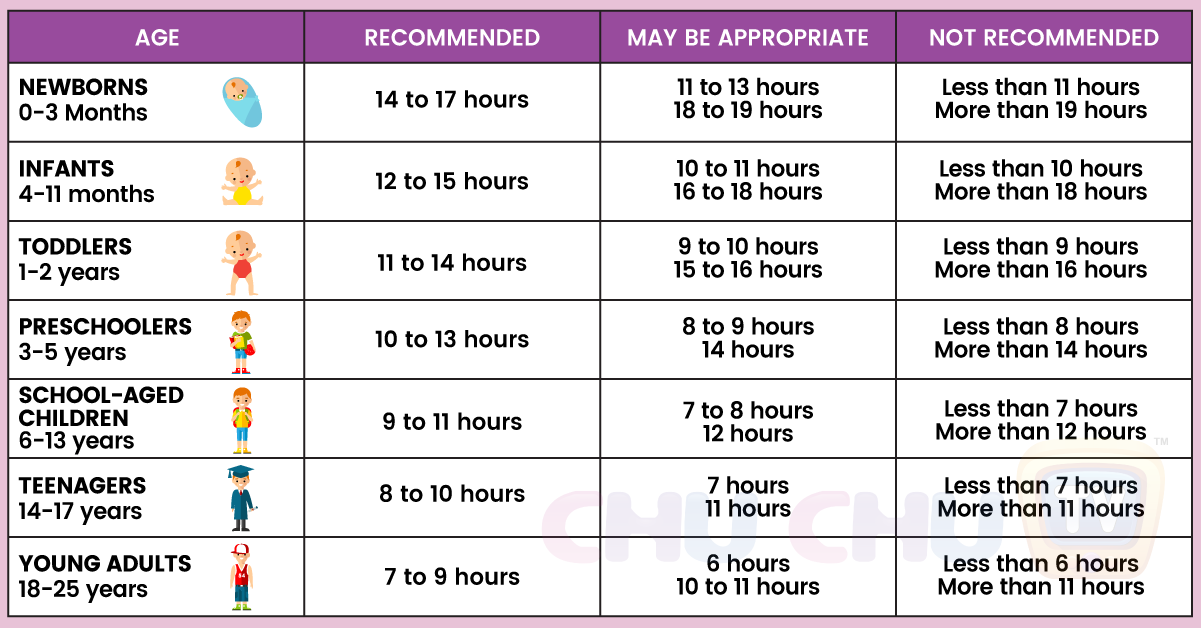 m. m. | 12:15 a.m. | 10:45 p.m. |
| 8:15 a.m. | 12:30 a.m. | 11 p.m. |
| 8:30 a.m. | 12:45 a.m. | 11:15 p.m. |
| 8:45 a.m. | 1 a.m. | 11:30 p.m. |
| 9 a.m. | 1:15 a.m. | 11:45 p.m. |
Sleep deprivation is a real concern for many people, especially those faced with consistent work and life challenges that can further disrupt sleep.
Of course, getting too little sleep can affect many of your body’s systems and restorative functions.
Health and mental health concerns — depression, anxiety, obstructive sleep apnea, and chronic pain, just to name a few — can contribute to sleep deprivation. But a lack of quality sleep can also worsen symptoms of these conditions and fuel a distressing cycle of sleeplessness.
The occasional night of poor sleep generally won’t have a serious impact on your health. All the same, experts have linked ongoing sleep deprivation to serious health consequences, including a higher risk of chronic diseases and early death.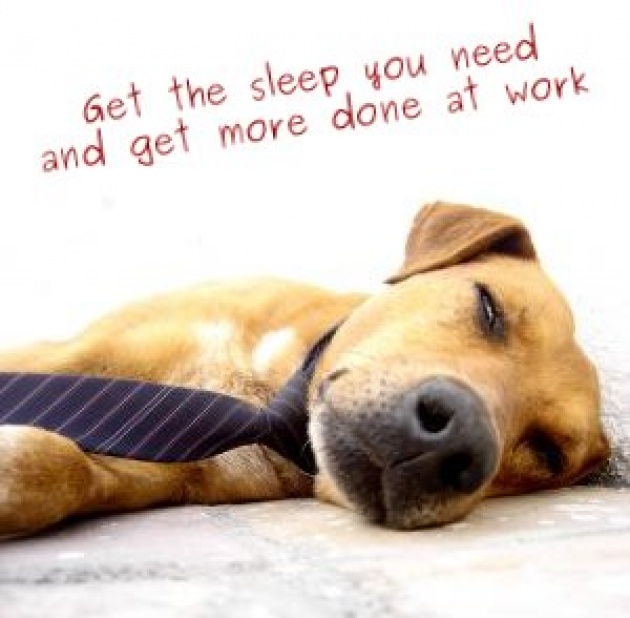
Sleep deprivation can have short-term and long-term physical, emotional, and cognitive health impacts.
For most people, a night of poor sleep can bring on noticeable physical effects, including:
Long-term sleep deprivation can take a more severe toll on your physical health, leading to:
Without a doubt, a night of bad sleep can affect your mood the next day.
When you don’t get enough sleep, you’re more likely to:
Research also suggests that sleep deprivation can worsen mental health symptoms, including depression, anxiety, paranoia, and hallucinations.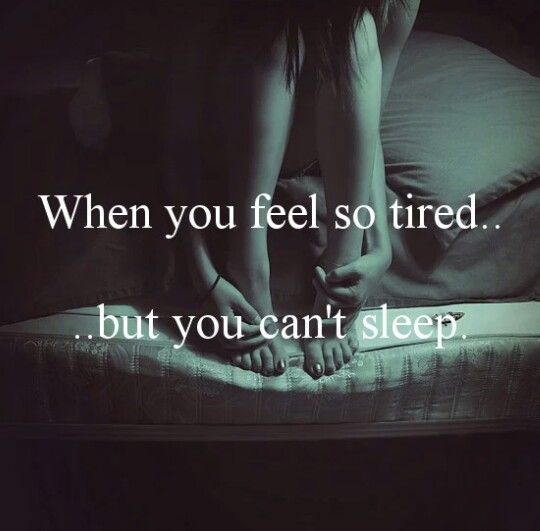
Sleep deprivation has also been linked to symptoms of some mental health conditions, including:
When you don’t get enough sleep, your brain can’t work as efficiently. As a result, you’ll likely have trouble concentrating and remembering things after a night of poor sleep.
Research has found evidence to suggest that sleep deprivation negatively affects functions associated with the brain’s frontal lobe, including:
These effects can play a part in:
When you fall asleep, your brain and body go through several cycles of sleep. Each cycle includes four distinct stages.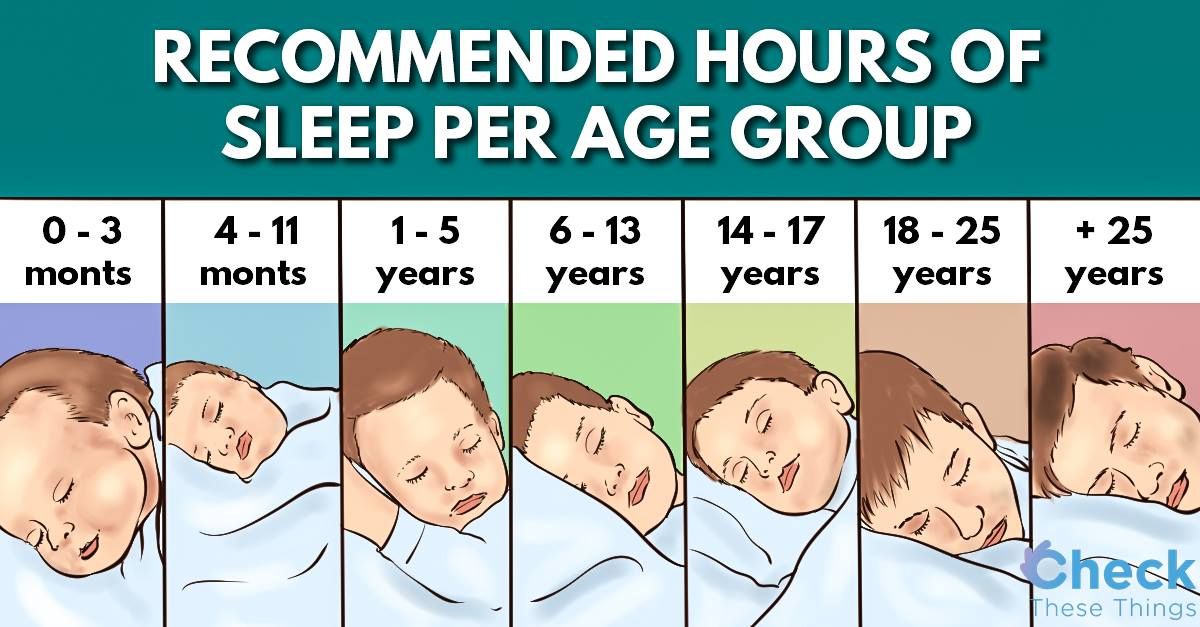
The stages used to be classified as stages 1, 2, 3, 4, and REM. Now, experts generally classify them as:
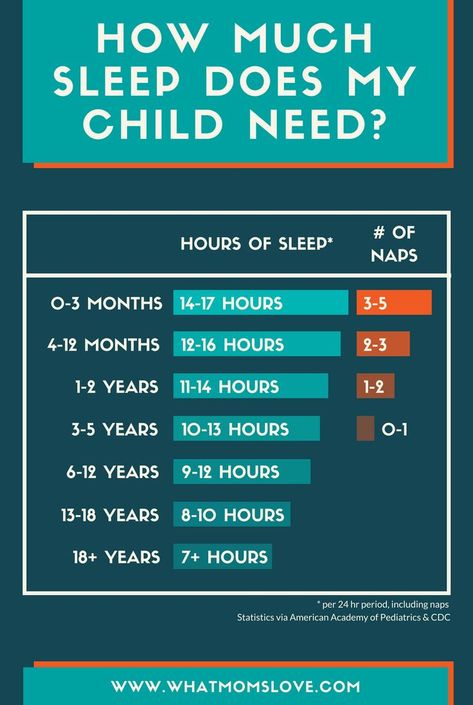 REM sleep helps boost your mental and physical performance when you wake up.
REM sleep helps boost your mental and physical performance when you wake up. It takes, on average, about 90 minutes to go through each cycle. Completing five cycles a night means you’d get 7.5 hours of sleep, while six full cycles translates to about 9 hours of sleep.
Ideally, you want to wake up at the end of a sleep cycle instead of in the middle of it — that’s because you’ll typically feel more refreshed and energized if you wake up at the end of a cycle.
Sleep is crucial for many reasons. A good night’s sleep:
You’ll find answers to some common questions about sleep below.
Yes, your need for sleep does change with age, though it typically stabilizes around the age of 20.
As you get older, you need less sleep, as a general rule.
Various environmental, behavioral, and medical factors can influence how much sleep you need, though, and those may change throughout your life.
For instance:
There are a few possible reasons you might wake up tired, even after sleeping for 8 hours. A good place to start exploring these reasons? Consider your sleep habits and sleep hygiene practices.
When it comes to sleep, quality matters just as much as quantity. Things that could detract from the quality of your sleep include:
Things that could detract from the quality of your sleep include:
Pulling all-nighters, or working the graveyard shift and then sleeping in the day, may contribute to some negative health effects, including increased risk for cardiovascular disease and type 2 diabetes.
Research suggests that being a night owl could also affect your eating habits and lead to erratic eating patterns, including:
What’s more, getting quality sleep during the day can be a challenge, with all the distractions and noise of life happening around you.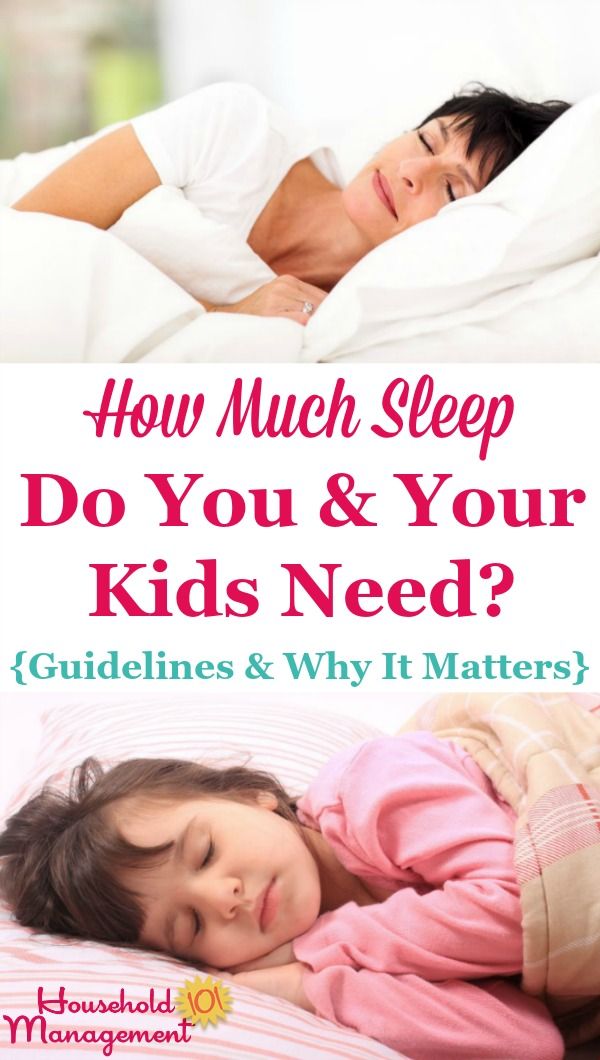
When you don’t have any option beyond working at night and sleeping during the day, these tips can help you get better rest.
To improve your sleep health, consider the following tips.

For more sleep support, check out our sleep shop.
If you’re aiming for 7 to 9 hours of sleep each night, a sleep calculator (like the one above) can help you figure out what time to go to bed based on your wake-up time.
Ideally, you’ll want to wake up at the end of your sleep cycle, which is when you’re most likely to feel the most rested.
A good night’s sleep is essential to good health, so if you’re having trouble falling asleep or staying asleep, consider reaching out to a healthcare professional. They can help you explore underlying causes of sleep difficulties and offer guidance.
How much sleep did you get last night? What about the night before? How much sleep do you actually need?
Keeping track of your sleep schedule might not always be your top priority, but getting enough sleep is critical to your health in many ways.
You may not realize it, but the amount of sleep you get can affect everything from weight and metabolism to brain function and mood.
For many people, wake-up time remains fairly constant from day to day. The time you go to sleep, however, might vary, depending on any number of things:
But since you know when you need to get up, knowing the specific amount of sleep you need to function at your best can help you determine what time to go to bed.
Below, you’ll find out how to calculate the best time to go to bed based on your wake time and natural sleep cycles. We’ll also offer more insight on how sleep cycles work and why sleep, or lack thereof, can affect your health.
How much sleep you need changes throughout your lifetime. An infant may need up to 17 hours of sleep each day, while an older adult may get by on just 7 hours of sleep a night.
Sleep guidelines can offer a place to start determining your sleep needs by providing research-backed recommendations for the ideal amount of sleep for optimal health.
The American Academy of Pediatrics and the Centers for Disease Control and Prevention (CDC) offer these general guidelines for different age groups:
Keep in mind, though, that sleep needs can still vary, even within the same age group.
You might need at least 9 hours of sleep a night to feel well rested, while your partner may wake up naturally after 7 hours, feeling perfectly refreshed and ready for the day.
The thing to keep in mind is how you feel when you get various amounts of sleep.
Here are a few questions to consider when evaluating your sleep needs:
Bedtimes are based on:
| Wake-up time | Bedtime: 7.5 hours of sleep (5 cycles) | Bedtime: 9 hours of sleep (6 cycles) |
4 a.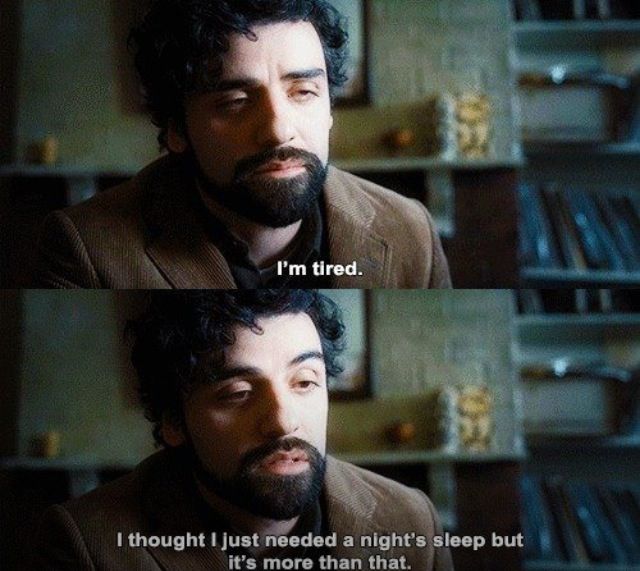 m. m. | 8:15 p.m. | 6:45 p.m. |
| 4:15 a.m. | 8:30 p.m. | 7 p.m. |
| 4:30 a.m. | 8:45 p.m. | 7:15 p.m. |
| 4:45 a.m. | 9 p.m. | 7:30 p.m. |
| 5 a.m. | 9:15 p.m. | 7:45 p.m. |
| 5:15 a.m. | 9:30 p.m. | 8 p.m. |
| 5:30 a.m. | 9:45 p.m. | 8:15 p.m. |
| 5:45 a.m. | 10 p.m. | 8:30 p.m. |
| 6 a.m. | 10:15 p.m. | 8:45 p.m. |
| 6:15 a.m. | 10:30 p.m. | 9 p.m. |
| 6:30 a.m. | 10:45 p.m. | 9:15 p.m. |
| 6:45 a.m. | 11 p.m. | 9:30 p.m. |
| 7 a.m. | 11:15 p.m. | 9:45 p.m. |
| 7:15 a.m. | 11:30 p.m. | 10 p.m. |
| 7:30 a.m. | 11:45 p.m. | 10:15 p.m. |
| 7:45 a.m. | 12 p.m. | 10:30 p.m. |
8 a. m. m. | 12:15 a.m. | 10:45 p.m. |
| 8:15 a.m. | 12:30 a.m. | 11 p.m. |
| 8:30 a.m. | 12:45 a.m. | 11:15 p.m. |
| 8:45 a.m. | 1 a.m. | 11:30 p.m. |
| 9 a.m. | 1:15 a.m. | 11:45 p.m. |
Sleep deprivation is a real concern for many people, especially those faced with consistent work and life challenges that can further disrupt sleep.
Of course, getting too little sleep can affect many of your body’s systems and restorative functions.
Health and mental health concerns — depression, anxiety, obstructive sleep apnea, and chronic pain, just to name a few — can contribute to sleep deprivation. But a lack of quality sleep can also worsen symptoms of these conditions and fuel a distressing cycle of sleeplessness.
The occasional night of poor sleep generally won’t have a serious impact on your health. All the same, experts have linked ongoing sleep deprivation to serious health consequences, including a higher risk of chronic diseases and early death.
Sleep deprivation can have short-term and long-term physical, emotional, and cognitive health impacts.
For most people, a night of poor sleep can bring on noticeable physical effects, including:
Long-term sleep deprivation can take a more severe toll on your physical health, leading to:
Without a doubt, a night of bad sleep can affect your mood the next day.
When you don’t get enough sleep, you’re more likely to:
Research also suggests that sleep deprivation can worsen mental health symptoms, including depression, anxiety, paranoia, and hallucinations.
Sleep deprivation has also been linked to symptoms of some mental health conditions, including:
When you don’t get enough sleep, your brain can’t work as efficiently. As a result, you’ll likely have trouble concentrating and remembering things after a night of poor sleep.
Research has found evidence to suggest that sleep deprivation negatively affects functions associated with the brain’s frontal lobe, including:
These effects can play a part in:
When you fall asleep, your brain and body go through several cycles of sleep. Each cycle includes four distinct stages.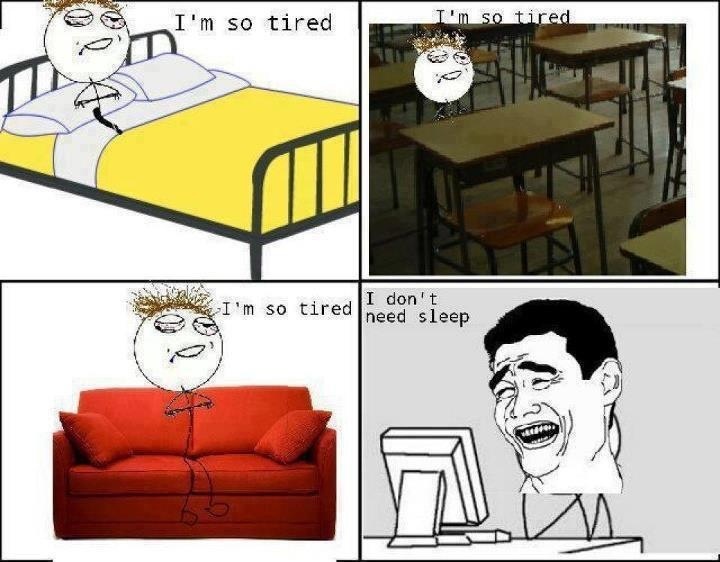
The stages used to be classified as stages 1, 2, 3, 4, and REM. Now, experts generally classify them as:
 REM sleep helps boost your mental and physical performance when you wake up.
REM sleep helps boost your mental and physical performance when you wake up. It takes, on average, about 90 minutes to go through each cycle. Completing five cycles a night means you’d get 7.5 hours of sleep, while six full cycles translates to about 9 hours of sleep.
Ideally, you want to wake up at the end of a sleep cycle instead of in the middle of it — that’s because you’ll typically feel more refreshed and energized if you wake up at the end of a cycle.
Sleep is crucial for many reasons. A good night’s sleep:
You’ll find answers to some common questions about sleep below.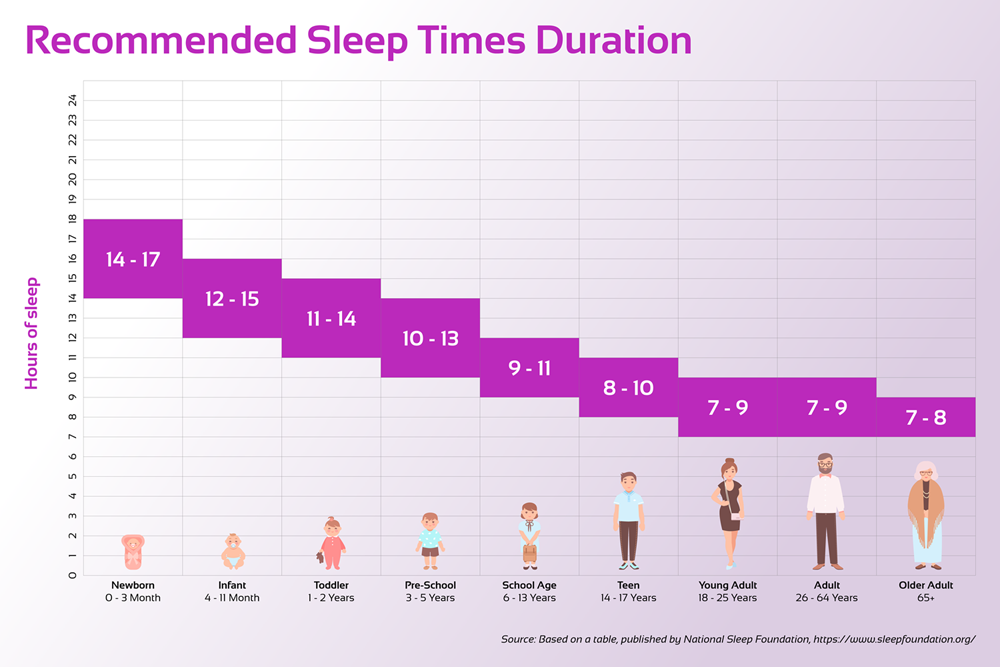
Yes, your need for sleep does change with age, though it typically stabilizes around the age of 20.
As you get older, you need less sleep, as a general rule.
Various environmental, behavioral, and medical factors can influence how much sleep you need, though, and those may change throughout your life.
For instance:
There are a few possible reasons you might wake up tired, even after sleeping for 8 hours. A good place to start exploring these reasons? Consider your sleep habits and sleep hygiene practices.
When it comes to sleep, quality matters just as much as quantity. Things that could detract from the quality of your sleep include:
Things that could detract from the quality of your sleep include:
Pulling all-nighters, or working the graveyard shift and then sleeping in the day, may contribute to some negative health effects, including increased risk for cardiovascular disease and type 2 diabetes.
Research suggests that being a night owl could also affect your eating habits and lead to erratic eating patterns, including:
What’s more, getting quality sleep during the day can be a challenge, with all the distractions and noise of life happening around you.
When you don’t have any option beyond working at night and sleeping during the day, these tips can help you get better rest.
To improve your sleep health, consider the following tips.

For more sleep support, check out our sleep shop.
If you’re aiming for 7 to 9 hours of sleep each night, a sleep calculator (like the one above) can help you figure out what time to go to bed based on your wake-up time.
Ideally, you’ll want to wake up at the end of your sleep cycle, which is when you’re most likely to feel the most rested.
A good night’s sleep is essential to good health, so if you’re having trouble falling asleep or staying asleep, consider reaching out to a healthcare professional. They can help you explore underlying causes of sleep difficulties and offer guidance.
July 3, 2020 Life
Scientists named a specific time for each.
At first glance, everything seems simple: to get a good night's sleep, you just need to sleep longer. But if you are a fan of such “simple” solutions, Lifehacker has some bad news for you.
Lack of sleep has a lot of side effects: from fatigue and loss of concentration to the inability to feel like a person without being flooded with caffeine up to your ears. They are known to anyone who has passed difficult sessions or is too familiar with the phrase "deadline tomorrow morning." However, overfilling is fraught with serious troubles. nine0003
nine0003
In a large-scale study of almost one and a half million adults, an interesting statistical pattern was established. People who sleep less than 6 hours a night have a 12% higher risk of dying prematurely from any health problem than those who get the standard 8 hours of sleep. But for those who like to sleep longer than 9 hours every day, the risks of dying prematurely are even higher - up to 30%!
And the desire to sleep more than 8-9 hours, if it accompanies a person constantly, is a dangerous marker of cardiovascular disease. nine0003
In general, sleeping a little longer is sometimes, of course, a good option. But it is better not to flirt and try to keep sleep within certain norms. Moreover, these norms have already been calculated.
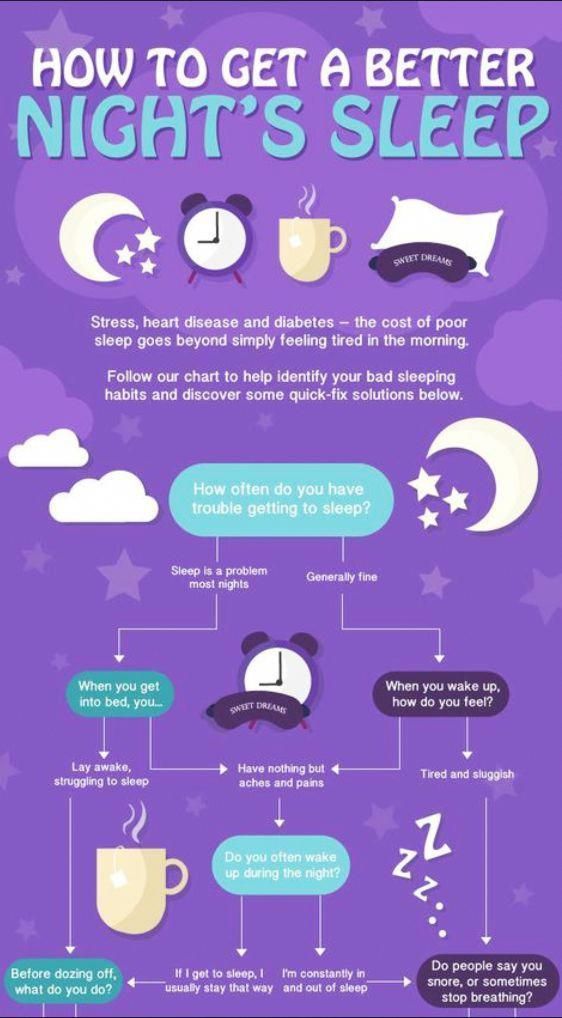 ..
.. For two years, researchers have carefully studied scientific publications and reports related to sleep and its impact on the body and well-being. As a result, updated recommendations regarding the duration of rest, depending on age, appeared.
Here's how much sleep you need to be productive and healthy:
The spread in numbers is associated with the individual characteristics of each person. And this is understandable, because the amount of sleep we need depends not only on age, but also on lifestyle, activity level, and general health.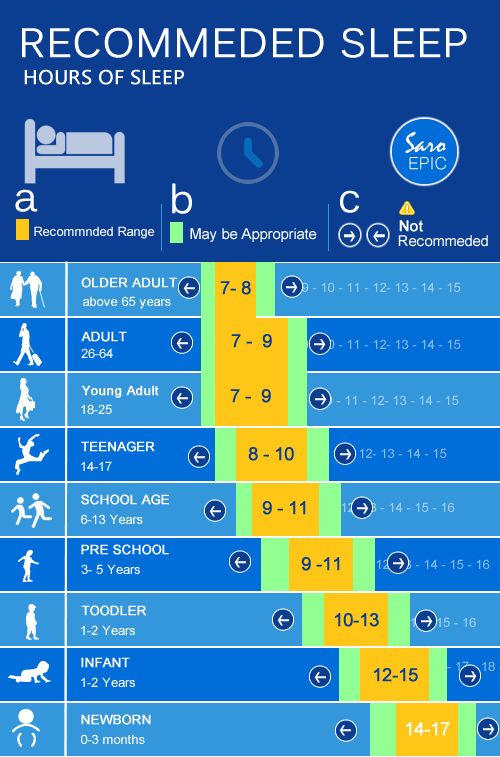 nine0003
nine0003
However, the boundaries of healthy sleep are still quite categorical. If you sleep more or less than the time indicated for your age group, we are most likely talking about sleep disorders - with various health consequences.
The only way to start getting enough sleep is to try to "fit" the duration of sleep into a healthy frame.
Most often, the problem of lack or excess of sleep is caused by two things:
And if the solution of the first point is largely related to self-discipline, then in the second case the situation is more complicated. It often happens that, having honestly gone to bed at 23:00, we wake up to the alarm clock, for example, at 6:30. But at the same time, we feel completely overwhelmed - although the recommended norm seems to be observed.
The reason is that sleep is a cyclic phenomenon.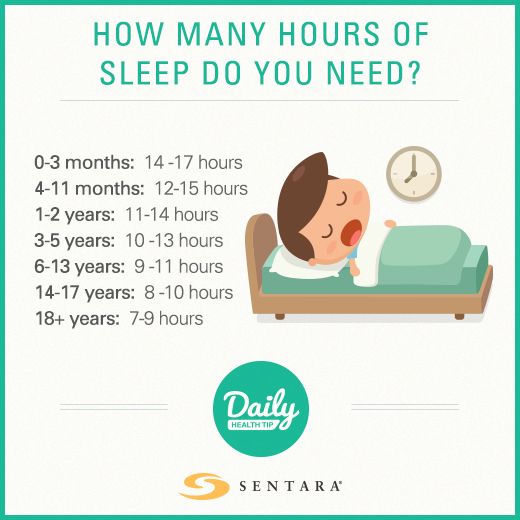 It consists of 5-6 time periods lasting about 90 minutes each. At the beginning of the cycle, we fall asleep, closer to the middle - we sleep soundly. And by the end, the body is ready to wake up easily - from the alarm signal or, let's say, sunlight.
It consists of 5-6 time periods lasting about 90 minutes each. At the beginning of the cycle, we fall asleep, closer to the middle - we sleep soundly. And by the end, the body is ready to wake up easily - from the alarm signal or, let's say, sunlight.
Summary: To wake up quickly and cheerfully, set your alarm clock correctly. You can calculate the time for which to start it yourself - for example, using Lifehacker's sleep calculator.
Another option is to use one of the mobile apps that track your sleep quality and wake you up at just the right time. nine0003
Read also 🧐
How many hours a day does an adult need to sleep in order to get enough sleep? What are sleep phases and what do their characteristics tell us? How does the duration of sleep depend on the age of a person, what is the danger of lack of sleep and is it possible to cope with insomnia without medication? We answer these and other questions in the material Forbes Life
Humanity has always been interested in sleep. The starting point of the scientific study of the dream process can be considered 1928, when the German physiologist and psychiatrist Hans Berger first recorded an electroencephalogram (EEG) in a person during sleep and wakefulness. In the 1950s and 1960s, the phases of sleep were discovered, which became an impetus for the development of somnology.
The starting point of the scientific study of the dream process can be considered 1928, when the German physiologist and psychiatrist Hans Berger first recorded an electroencephalogram (EEG) in a person during sleep and wakefulness. In the 1950s and 1960s, the phases of sleep were discovered, which became an impetus for the development of somnology.
In 2010, scientists from the UK and Italy conducted a large-scale study that covered 1.5 million people. Thus, a statistical pattern was established: in people who sleep less than six hours a day, the risk of premature death due to health problems increases by 12% compared to those who sleep eight hours. However, those who like to sleep more than nine hours a day, such risks increase to 30%. Experts noted that when a person sleeps for more than eight to nine hours, this is an occasion to pay attention to the state of the cardiovascular system. nine0003
At the same time, experts consider the statement that all people need to sleep the same number of hours and go to bed strictly at a certain time, erroneous.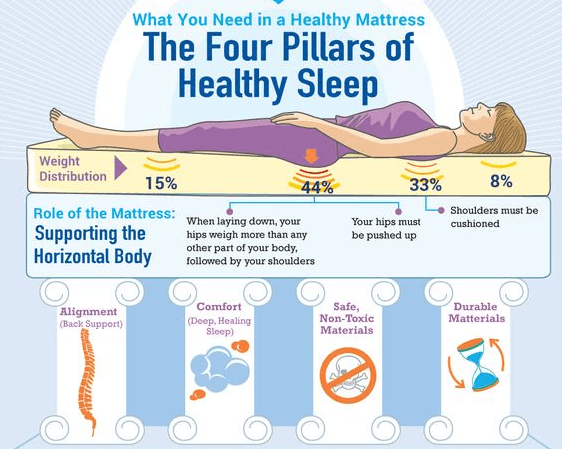 “Some people need more sleep, some less. Someone is used to going to bed at 21:00, and someone at 0:00, - says a neurologist, assistant of the Department of Nervous Diseases and Neurosurgery of the First Moscow State Medical University named after I.M. Sechenova Polina Pchelina. - It's determined genetically. On average, adults need seven to nine hours of sleep at night, although there are those in this age group who need six to six and a half hours of rest, or, conversely, 10. In people over 65, the need for sleep varies between seven and eight o'clock." And the older a person becomes, the less sleep he needs, says Pchelina. “If a newborn needs to sleep until 17:00, then a student does not need more than 10-13. By the age of 18, sleep is normal for an adult: seven to nine hours, ”says the doctor. nine0003
“Some people need more sleep, some less. Someone is used to going to bed at 21:00, and someone at 0:00, - says a neurologist, assistant of the Department of Nervous Diseases and Neurosurgery of the First Moscow State Medical University named after I.M. Sechenova Polina Pchelina. - It's determined genetically. On average, adults need seven to nine hours of sleep at night, although there are those in this age group who need six to six and a half hours of rest, or, conversely, 10. In people over 65, the need for sleep varies between seven and eight o'clock." And the older a person becomes, the less sleep he needs, says Pchelina. “If a newborn needs to sleep until 17:00, then a student does not need more than 10-13. By the age of 18, sleep is normal for an adult: seven to nine hours, ”says the doctor. nine0003
Related material
During sleep, the brain is cleared of toxins and accumulated metabolic waste, the excess of which can lead to Alzheimer's disease - a type of dementia (acquired dementia), a condition in which the brain ceases to perform its functions properly.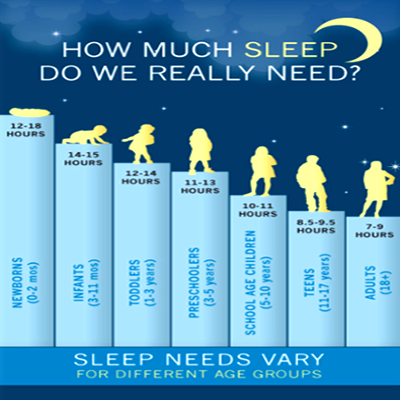 “However, oversleeping can also affect our condition: when a person sleeps more than his norm, this may not guarantee him good health for the day. Many studies have shown that lack of sleep and oversleeping led to the risk of arterial hypertension, myocardial infarction, chronic heart failure and diabetes, ”says Pchelina. nine0003
“However, oversleeping can also affect our condition: when a person sleeps more than his norm, this may not guarantee him good health for the day. Many studies have shown that lack of sleep and oversleeping led to the risk of arterial hypertension, myocardial infarction, chronic heart failure and diabetes, ”says Pchelina. nine0003
If we talk about what time you need to fall asleep, then rather you need to follow an individual biorhythm. “The same bedtime for everyone is a harmful myth, because in the morning everyone needs to get up at different times,” says Pchelina. “It’s much better to find a time that works for you and stick to it regularly.” In other words, it is necessary to develop your own regimen, the doctor notes. “First of all, it will depend on how many hours you need to sleep before getting up for work or on business, as well as on the degree of your workload,” the neurologist believes. nine0003
At the same time, there is evidence that the ideal time to go to bed is 22:00-23:00. At this time, the level of the stress hormone cortisol decreases, and the level of melatonin (the sleep hormone), on the contrary, begins to rise. According to statistics, 76% of people who go to bed between 22:00 and 23:00 feel alert and rested in the morning.
At this time, the level of the stress hormone cortisol decreases, and the level of melatonin (the sleep hormone), on the contrary, begins to rise. According to statistics, 76% of people who go to bed between 22:00 and 23:00 feel alert and rested in the morning.
Related material
If a person is a "night owl" and is used to going to bed after midnight, he will not be able to fall asleep at the recommended time. In this case, you should pay attention to sleep cycles and their phases. It is known that one complete sleep cycle lasts about 90 minutes. At the same time, it consists of four subcycles - phases, which, in turn, are divided into three stages. In REM sleep, which was discovered by American neurophysiologists Nathaniel Kleitman and Eugene Aserinsky from the University of Chicago in 1953, for example, a person sees dreams.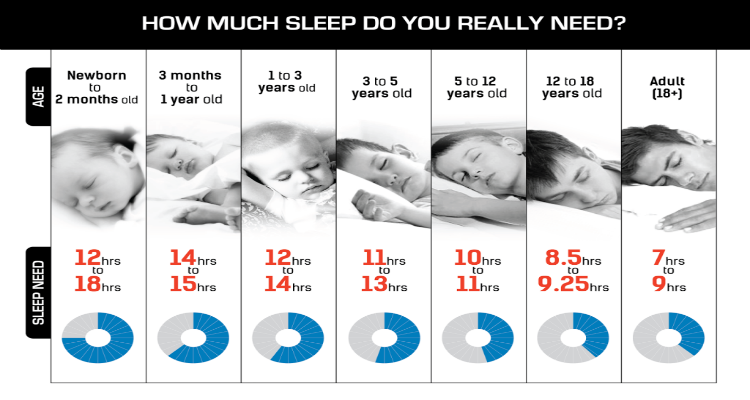
Usually, in a healthy person, sleep begins with the first stage, lasting 5-10 minutes - this is the so-called phase of non-REM sleep. Then comes the second stage, lasting about 20 minutes. The third and fourth stages account for about 30-45 minutes more. After that, the person returns to the second stage of non-REM sleep, but from there he switches to the first phase of REM sleep, which lasts about five minutes. Such a sequence is called a cycle. The cycles are repeated, while the duration of non-REM sleep decreases with each subsequent cycle, and the phase of REM sleep, on the contrary, increases. “As we move from the first stage of slow-wave sleep to the third, the activity of the body decreases: the work of the cardiovascular system slows down, the perception of external information almost completely stops, and the activity of the brain decreases,” Pchelina comments. - In the phase of REM sleep, on the contrary, sensitivity to external signals increases - therefore, it is easiest to wake up from this phase. The role of REM sleep for the body is still not well understood. But neurophysiologists say that at this time, the skills acquired during the day are consolidated and the emotional aspects of information are processed. nine0003
The role of REM sleep for the body is still not well understood. But neurophysiologists say that at this time, the skills acquired during the day are consolidated and the emotional aspects of information are processed. nine0003
In order to feel good, and not to walk around broken all day, it is worth waking up only after a completely completed cycle, that is, sleep time should be a multiple of 90 minutes, for example, six, seven and a half or nine hours.
Related material
The alternation of wakefulness and sleep in humans occurs cyclically, with a period of approximately 24 hours, and this is largely due to the natural cycle of light. That is, with the onset of the dark time of the day, the brain gives signals to the body that it is time to sleep. At the same time, there is daytime sleep. But how necessary and useful is it? nine0003
At the same time, there is daytime sleep. But how necessary and useful is it? nine0003
According to neuropathologist Pchelina, sleep during the day, first of all, is necessary for those who are forced to work night shifts. “For everyone else, a 15-20-minute daytime sleep will not hurt, but, on the contrary, will add a feeling of cheerfulness for two to three hours. However, for patients with insomnia, I do not recommend sleeping during the day until they establish a regimen, ”says the doctor.
The health and productivity benefits of daytime sleep have long been noted in Japan. Local employers encourage daytime naps among their employees, and the phenomenon even has its own name - inemuri ("practice of daytime sleep at work"). At the same time, there is a main rule - social involvement. If, for example, a person decides to sleep during a meeting, he should do it in such a way that the effect of involvement in the work process is created. Inemuri is often referred to as the Japanese art of sleeping. Its appearance is associated with the economic boom 1980s. Then the life of the Japanese became more dynamic, people worked hard, studied and had fun. There was practically no time for sleep. Thus was born the practice of short daytime sleep - 15-30 minutes.
Inemuri is often referred to as the Japanese art of sleeping. Its appearance is associated with the economic boom 1980s. Then the life of the Japanese became more dynamic, people worked hard, studied and had fun. There was practically no time for sleep. Thus was born the practice of short daytime sleep - 15-30 minutes.
Also in Japan, they came up with special sleep capsules - comfortable soundproof booths for sleeping. This idea was adopted by Europe and in the mid-2000s, the first Metronaps sleep pods appeared at the headquarters of Google, Procter & Gamble and Virgin Atlantic, as well as at the international airports of London and Vancouver. Russian employers also began to encourage sleep at the workplace. nine0003
Dr Nerina Ramlahan of the University of Leeds says short naps reduce the risk of diabetes and cardiovascular disease, and help overcome depression and other side effects of sleep deprivation that are equivalent to severe alcohol intoxication. According to researchers at the Rotterdam School of Management, "quiet time" saves companies billions because employees become more productive after it.
According to researchers at the Rotterdam School of Management, "quiet time" saves companies billions because employees become more productive after it.
Related material nine0003
According to Pchelina, unbalanced sleep provokes insomnia (insomnia) and disruption of the sleep-wake cycle. “This is dangerous with a deterioration in mood, a decrease in working capacity, rapid fatigue and an increased risk of cardiovascular dysfunctions,” the expert notes.
Pchelina identifies several types of sleep disorders that are most common in modern man:
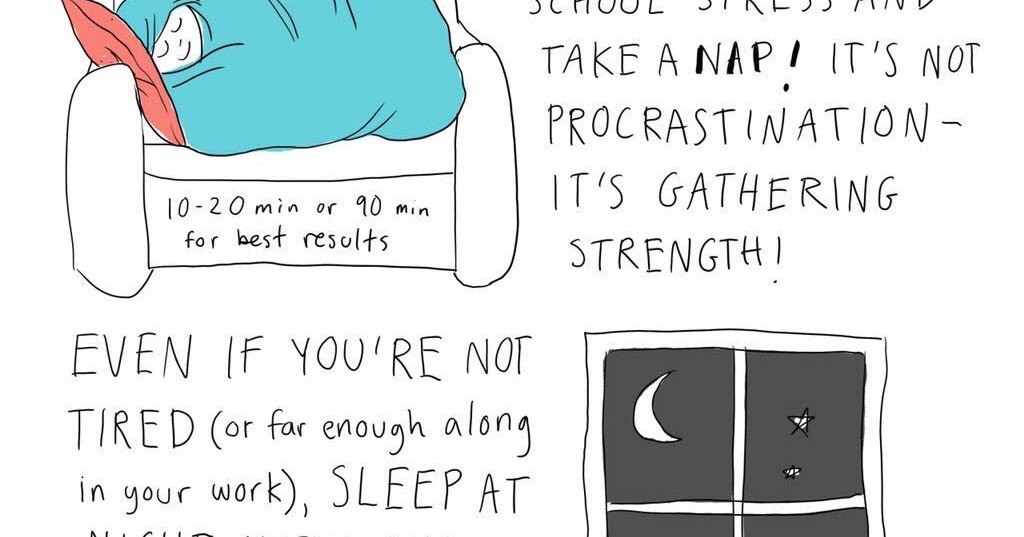 Other species often develop as a result of mental illness. For example, depression. A sleep disorder of a mental nature does not pose a threat to health, but significantly impairs the quality of life of patients. nine0028
Other species often develop as a result of mental illness. For example, depression. A sleep disorder of a mental nature does not pose a threat to health, but significantly impairs the quality of life of patients. nine0028  nine0028
nine0028 Related material
If you are not satisfied with the quality of sleep, you do not get enough sleep or, conversely, you cannot fall asleep for a long time, it makes sense to go to the doctor. Especially if you feel worse. “The main reason to visit a specialist is your personal feelings. There is no specific set of complaints,” says Pchelina. nine0003
The doctor specifies that the choice of therapy depends on the diagnosis. In some cases, this is surgical, hardware and drug treatment. However, the neurologist is trying to find a way to deal with patients' insomnia without drugs.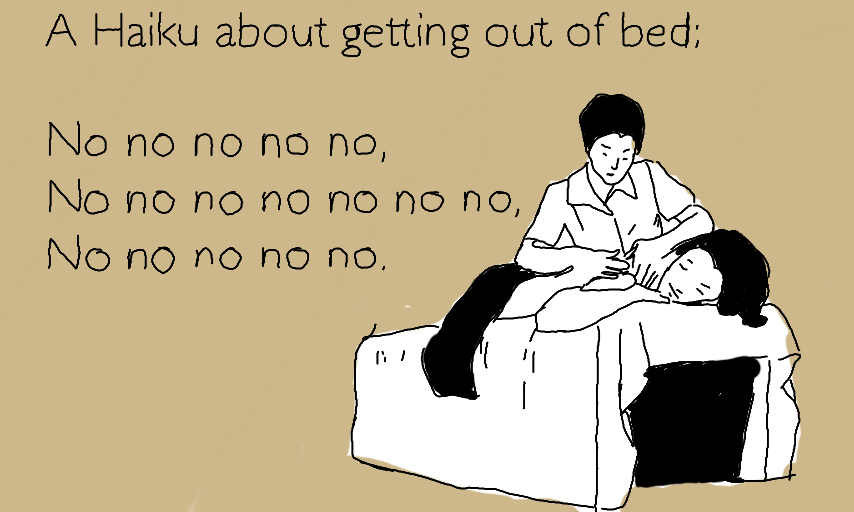 In such cases, cognitive behavioral therapy (CBT) for insomnia comes to the rescue - a complex form of psychotherapy, which is based on a technique that allows you to identify and change habits associated with thinking or behavior. Many patients who come to CBT receive an explanation of the mechanisms that control sleep. “It also helps to cope with anxiety, which often prevents you from falling asleep,” Pchelina adds. nine0003
In such cases, cognitive behavioral therapy (CBT) for insomnia comes to the rescue - a complex form of psychotherapy, which is based on a technique that allows you to identify and change habits associated with thinking or behavior. Many patients who come to CBT receive an explanation of the mechanisms that control sleep. “It also helps to cope with anxiety, which often prevents you from falling asleep,” Pchelina adds. nine0003
According to clinical and social psychologist Nikita Korzun, insomnia can be managed without medication. But among his patients there are many who have insomnia - a concomitant symptom of a disease, he notes. Often these are drug (and other) addictions that also cause sleep disturbances. In this case, specialists resort to medical treatment and psychological practices. “In some cases, insomnia is quite normal. For example, it is often observed during pregnancy. But if insomnia bothers you more than three times a week for a long time, then you should not postpone going to the doctor. In the case when physiological causes have not been identified, the root of the problem must be sought at the mental level, ”says the psychologist. nine0003
In the case when physiological causes have not been identified, the root of the problem must be sought at the mental level, ”says the psychologist. nine0003
What happens to a person when he does not sleep for a long time:
 ), in humans a state of delirium sets in.
), in humans a state of delirium sets in. Related material
Numerous clinical studies show a strong association between sleep disorders and depression. With depression at 80-9Insomnic (difficulty falling asleep) and hyperomnic (increased drowsiness) sleep disorders are observed in 0% of cases. When evaluating the data of an objective polysomnographic study, it can reach 100%.
It has also been shown that depression occurs in 20% of people with sleep disorders and only 1% of people without these problems. “In patients with depression, the production of the hormone melatonin by the pituitary gland, which regulates the circadian rhythm, as well as sleep and wakefulness patterns, is often reduced. This can contribute to the development of insomnia,” explains Korzun.